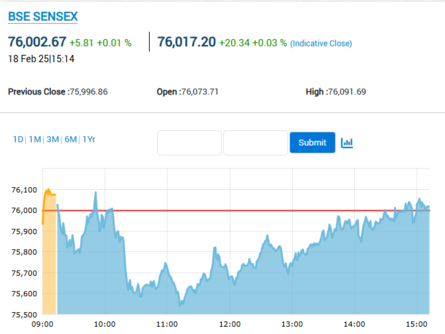The Trump Factor: Shifting Dynamics Between Greenland And Denmark

Table of Contents
Greenland's Unique Status and Aspirations for Greater Autonomy
Greenland's relationship with Denmark is unique. Currently, Greenland enjoys Home Rule, a form of self-governance within the Kingdom of Denmark. This means Greenland manages its internal affairs, including areas like healthcare, education, and culture, while Denmark retains responsibility for foreign policy, defense, and aspects of justice. However, this arrangement has been a source of ongoing debate. The historical context reveals a long journey towards self-governance, starting with Danish colonialism and moving towards a greater degree of autonomy over several decades.
- A historical perspective: The process of granting Greenland greater autonomy has been gradual, marked by significant milestones like the Home Rule Act of 1979.
- Economic Dependence and Resource Control: Greenland's economy is heavily reliant on financial support from Denmark. This economic dependence is a key factor fueling the desire for greater control over Greenland's natural resources, including valuable minerals and lucrative fishing grounds. This control is seen as essential for genuine self-sufficiency and economic independence.
- Political Dynamics: Greenlandic political parties hold diverse views on the path forward. Some advocate for full independence, while others prioritize strengthening Home Rule before pursuing a complete separation from Denmark. The debate is complex, reflecting the diverse aspirations of the Greenlandic people.
Denmark's Balancing Act: Maintaining Ties While Respecting Greenland's Self-Determination
Denmark faces a delicate balancing act. It must reconcile its historical relationship with Greenland, marked by periods of colonialism and paternalism, with a commitment to respecting Greenland's self-determination. The country's diplomatic strategy is navigating a complex path, recognizing Greenland's growing desire for independence while also maintaining vital strategic and economic ties.
- Historical Responsibility and Modern Diplomacy: Denmark acknowledges its historical responsibility towards Greenland and strives to support Greenland's journey towards self-governance. This involves providing financial support and facilitating Greenland's participation in international forums.
- Economic and Strategic Interests: Denmark maintains significant economic and strategic interests in Greenland, including access to its rich natural resources and the strategic importance of the region in the Arctic. These interests must be carefully weighed against Greenland's aspirations.
- Response to Trump's Offer: Denmark's swift and decisive rejection of Trump's offer to purchase Greenland demonstrated its commitment to supporting Greenland's sovereignty and self-determination. The response strengthened the Denmark-Greenland relationship in the eyes of many.
- Navigating Complexities: Balancing its responsibility towards Greenland's self-determination with its own national interests presents a significant challenge for Danish diplomacy.
The Geopolitical Significance of Greenland and the Arctic Region
Greenland's strategic importance is undeniable. The Arctic region is experiencing a surge in global interest due to climate change, the potential for resource extraction, and its strategic geopolitical positioning. This has created increased competition among major powers, including the USA, Russia, and China.
- Resource Competition: Greenland possesses significant mineral reserves, including rare earth elements crucial for modern technologies. Access to these resources is a major driver of international interest in the region.
- Climate Change and the Arctic: The melting Arctic ice cap opens up new shipping routes and access to resources, further increasing the strategic importance of Greenland and other Arctic regions.
- Great Power Rivalry: The growing interest from major powers creates potential for increased competition, potentially impacting Greenland's autonomy and self-determination.
- Environmental Concerns: Resource extraction in the fragile Arctic ecosystem requires careful management to minimize environmental impact and protect the region's unique biodiversity.
The Trump Offer's Lasting Impact on Greenland-Denmark Relations
Trump's ill-advised attempt to purchase Greenland had a profound and lasting impact, even though it was ultimately unsuccessful. The proposal sparked intense debate and highlighted the complex issues underlying Greenland's relationship with Denmark.
- Public Opinion and National Identity: The offer ignited public discussions in both Greenland and Denmark about national identity, sovereignty, and the future of their relationship.
- Renewed Conversations on Autonomy: The incident galvanized conversations about Greenland's autonomy, speeding up the process of defining a clearer path towards self-determination.
- Impact on Bilateral Relations: While the incident initially caused friction, it also fostered renewed dialogue and a stronger commitment from Denmark to support Greenland's autonomy.
- Shifts in International Perceptions: The Trump offer brought Greenland’s geopolitical importance to the forefront of international attention, influencing how the world views Greenland's sovereignty and autonomy.
Conclusion
The Trump administration's attempt to purchase Greenland, while ultimately unsuccessful, served as a powerful catalyst. It exposed pre-existing tensions and highlighted the evolving relationship between Greenland and Denmark. The incident significantly accelerated discussions about Greenland's autonomy and its place in the increasingly strategic Arctic region. The "Trump factor" irrevocably altered the narrative, forcing a reevaluation of the delicate balance between Greenland’s aspirations for greater self-determination and Denmark’s historical ties and strategic interests. Understanding the complexities of the Greenland-Denmark relationship, particularly in light of the "Trump factor," is crucial for comprehending the future of the Arctic and the dynamics of self-determination in a globalized world. Continue exploring the nuances of this vital relationship and learn more about the ongoing evolution of Greenland's autonomy and its impact on the region.

Featured Posts
-
 Bundesliga 2 Matchday 27 Results Cologne Dethrones Hamburg
May 10, 2025
Bundesliga 2 Matchday 27 Results Cologne Dethrones Hamburg
May 10, 2025 -
 Alterya Acquired By Chainalysis A Strategic Move In Blockchain Security
May 10, 2025
Alterya Acquired By Chainalysis A Strategic Move In Blockchain Security
May 10, 2025 -
 Jeanine Pirro Named Trumps Top D C Prosecutor
May 10, 2025
Jeanine Pirro Named Trumps Top D C Prosecutor
May 10, 2025 -
 Sensex And Nifty Live Updates Market Rebounds Trades Higher
May 10, 2025
Sensex And Nifty Live Updates Market Rebounds Trades Higher
May 10, 2025 -
 Bodycam Captures Police Saving Toddler Choking On Tomato
May 10, 2025
Bodycam Captures Police Saving Toddler Choking On Tomato
May 10, 2025
